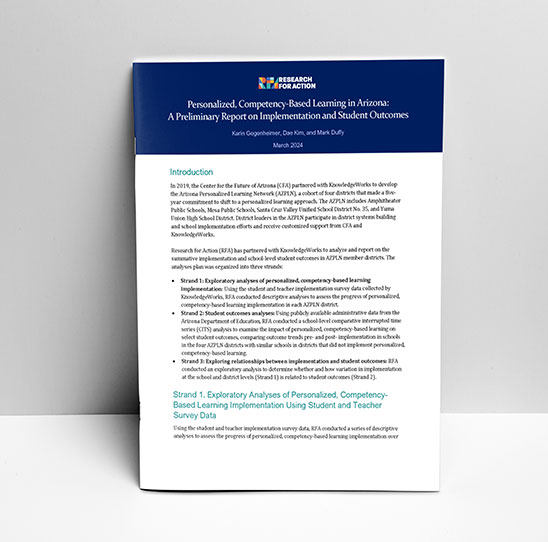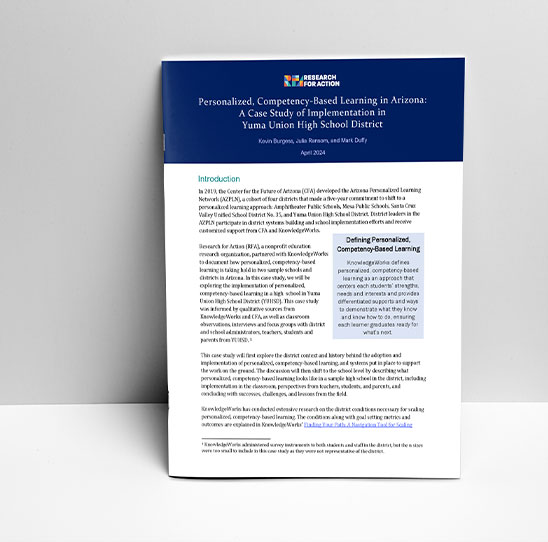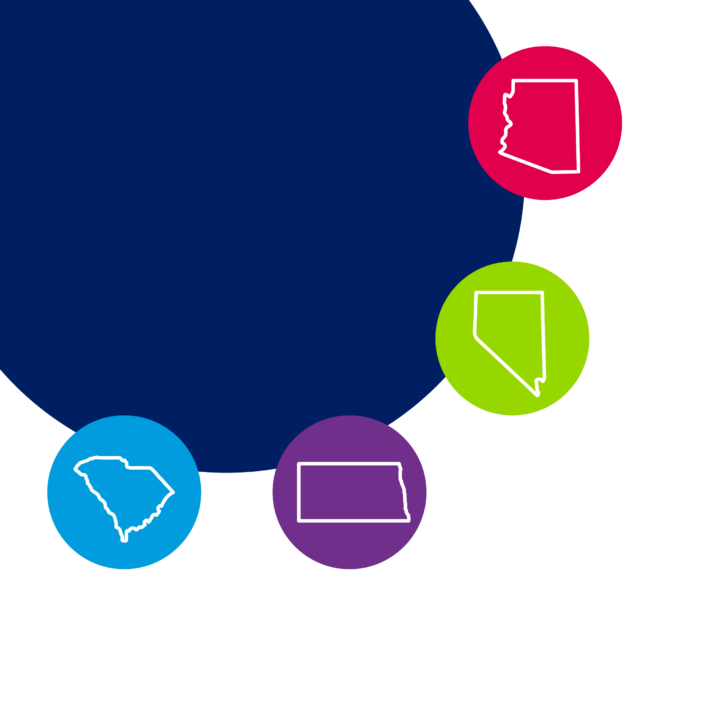This report examines the implementation and outcomes of personalized, competency-based learning in the Arizona Personalized Learning Network (AZPLN) districts. The study conducted by Research for Action (RFA) analyzed survey data from students and teachers, as well as publicly available school-level outcomes data to assess the progress and impact of personalized learning approaches. The findings reveal that while teachers perceived strong implementation of personalized, competency-based learning, students’ perceptions varied and showed moderate to strong levels of implementation. Notably, teachers reported improved implementation over time, contrasting with relatively stable student perceptions across the surveyed years.
In terms of student outcomes, the analysis showed mixed results. There was evidence of negative effects on achievement outcomes in elementary schools, no discernible achievement effects in middle schools, and some positive effects observed in high schools. However, there was no conclusive evidence of effects on graduation or dropout rates in high schools. Importantly, the study found no significant relationship between students’ and teachers’ perceived implementation levels and student outcomes. The overlap of the COVID-19 pandemic with the initial implementation phase of personalized learning may have impacted the results, as the districts started implementation in 2019.
Recommendations from the report emphasize the importance of continued study on personalized, competency-based learning and its effects on student outcomes as implementation progresses in AZPLN districts. The early stages of implementation, further complicated by the challenges posed by the pandemic, suggest caution in interpreting the current findings. Continued monitoring and evaluation of the implementation process and its impact on student outcomes are advised to understand the longer-term implications of personalized learning approaches in these educational settings. The report calls for ongoing research to deepen understanding of the relationship between implementation strategies and student outcomes over time, considering the unique context of each district within the AZPLN.
Ultimately, the report underscores the need for sustained attention to personalized, competency-based learning initiatives in the AZPLN districts. Despite some positive trends in teacher perceptions and certain student outcomes, the study highlights the complex nature of implementation and its varied impact across different school levels. As the districts navigate through the early stages of personalized learning implementation, addressing the challenges and building upon the successes observed will be crucial for optimizing the educational experience and outcomes for students in the long run.


